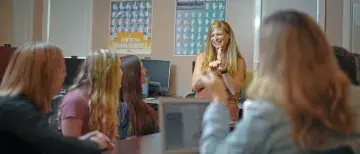
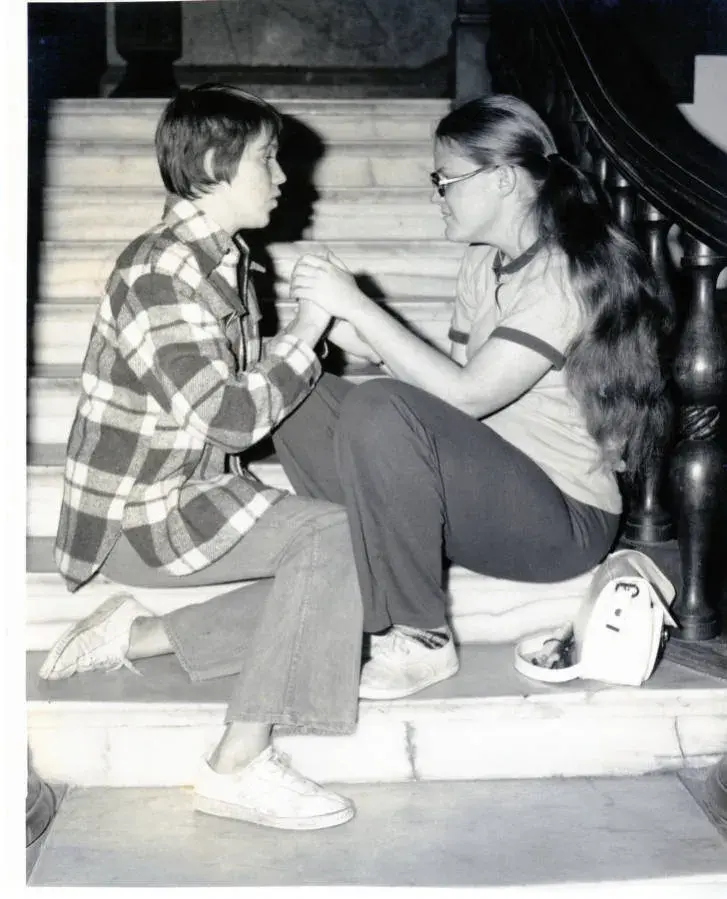
Students sign on Rotunda steps (FC Digital Archives)
As we celebrate Deaf History Month, we recognize Flagler College’s longtime relationship with FSDB and how our institution has become a pioneer in the field of Deaf Education.
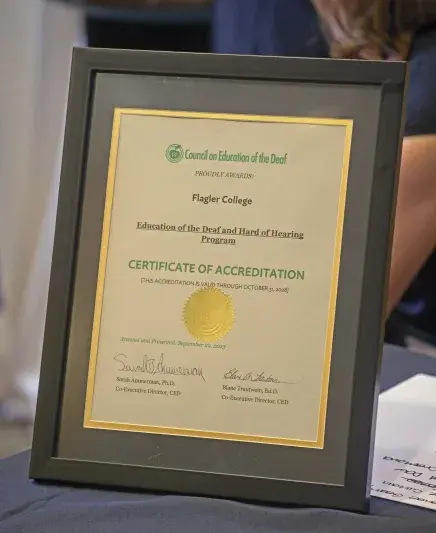
Established in 1974, Flagler's Deaf Education program has a rich history of preparing educators to work with Deaf and hard of hearing (DHH) students. Just two miles away from FSDB’s campus, the College is ideally located for Deaf Education students to gain practical experience in DHH classrooms. American Sign Language (ASL) Studies has been an integral part of the program, ensuring graduates' proficiency in ASL.
In 2016, the program expanded to include a Master’s in Deaf Education, with the Flagler Fast Track option allowing candidates to earn their degree in one year. The College has also introduced an ASL minor, open to students from all majors across campus.
June Ann LeFors | Director of the American Sign Language Program
For the past four years, June Ann LeFors has been dedicated to teaching ASL courses and collaborating with adjunct instructors. She oversees the ASL Lab in Kenan Hall, where students receive assignment help and engage in ASL exchanges with peers. Additionally, LeFors serves as the advisor for the Deaf Awareness Club (DAC) and the ASL Honor Society. Last April, she launched the inaugural “ASL Champ!” open-stage event for Deaf History Month, creating a dynamic platform for performers and audience members to celebrate and promote ASL through captivating performances.
Jennifer Catalano | Associate Professor & Director of the Graduate and Undergraduate Programs in Deaf Education
For the past seven years, Jennifer Catalano has taught courses in both the graduate and undergraduate programs. She manages all aspects of the graduate program, from recruitment to commencement. In the undergraduate program, she advises Deaf Education majors, collects program data, and coordinates Deaf Education courses and programming with the Education Department chair. Last April, she put on a celebration for the 50th anniversary of the Deaf Education program with over 80 attendees, honoring five influential instructors for their significant impact on the program.
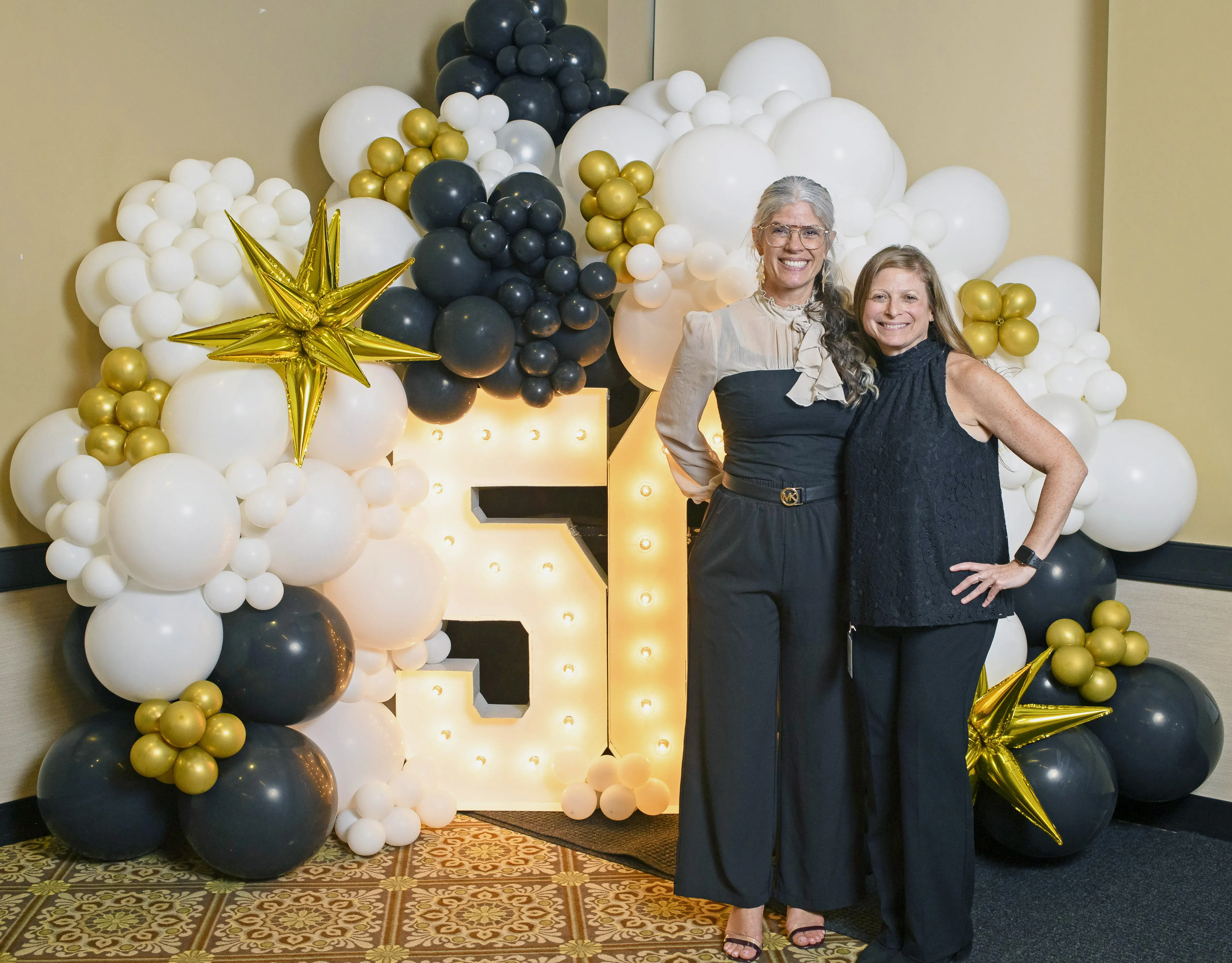
June Ann & Jennifer at 50th anniversary celebration
How do you incorporate the insights gained from your professional experiences into your teaching and program guidance?
Jennifer Catalano: Drawing from my experiences as a teacher in Deaf, special, and general education classrooms, I teach my students effective strategies and practices that have worked for me. During my doctoral program, I helped develop evidence-based interventions specifically designed for DHH students. In Flagler’s Deaf Education practicum, I introduce teacher candidates to the indicators of the Quality of the Learning Environment (QLE-DHH), a teacher rating scale we developed at the Center on Literacy and Deafness (CLAD) that supports teaching practices in Deaf Education settings. I guide students into real-world experiences.
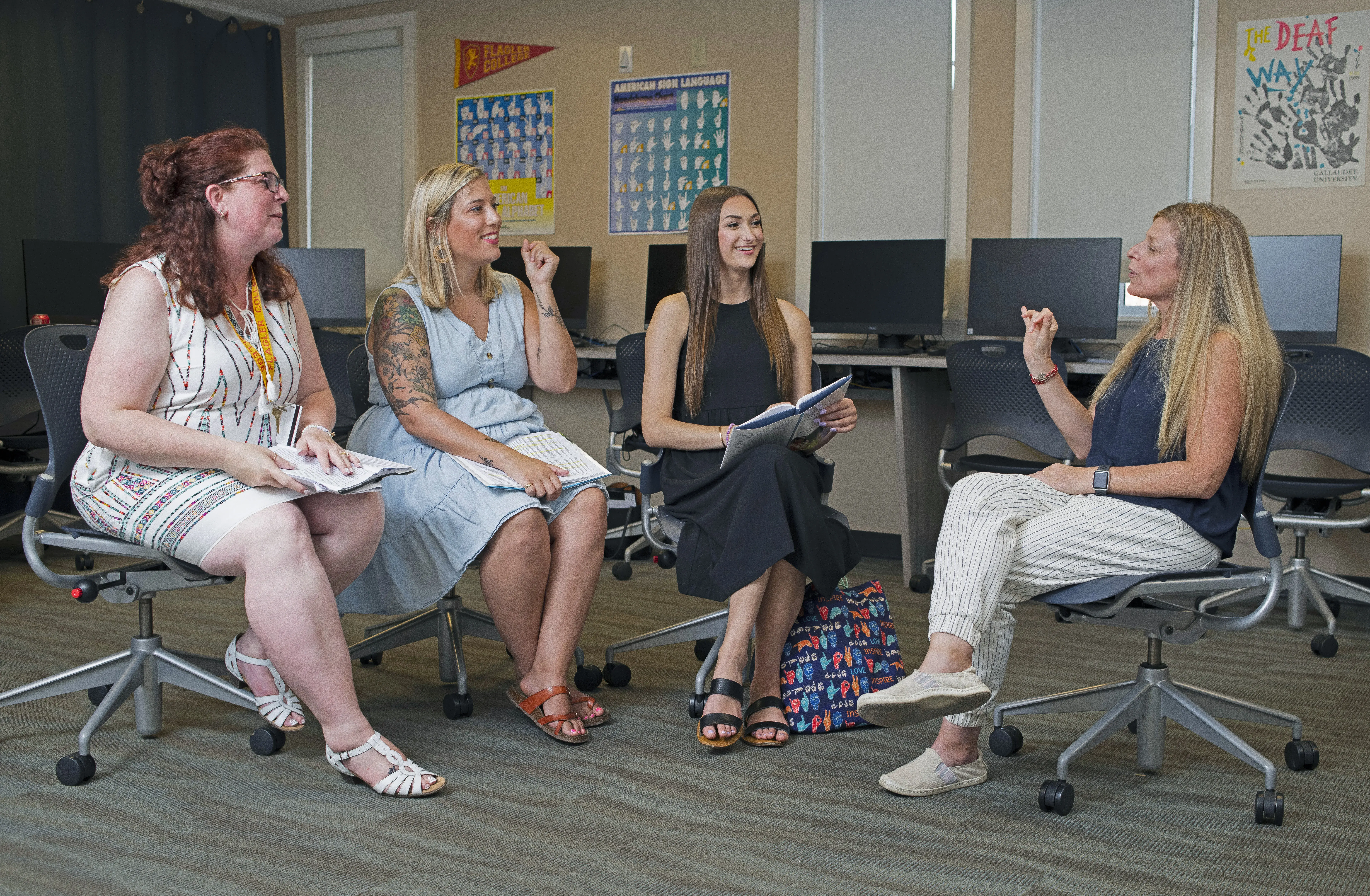
Just this past November, nine undergraduate Deaf Education majors and two master’s students volunteered at the 2024 Florida Educators of Deaf and Hard of Hearing Students Conference in Gainesville, attending breakout sessions and networking with DHH teachers from across the state.
June Ann LeFors: As a Deaf person who attended a Deaf state school and Gallaudet University, the world's only university for the Deaf, I bring my personal experiences into the classroom and present ASL as a unique visual language. With a BA in Elementary Education and an MA in Deaf Education/Deaf Studies, I emphasize the importance of honing ASL skills for effective communication and teaching. I also founded the ASL Honor Society (ASLHS) to promote and recognize the achievements of our students.
Additionally, I invite well-known guests and host events on campus where students can interact with the Deaf community. In March, for example, Deaf adventurer Joel Barish shared his travel experiences visiting more than 100 countries, highlighting the shared experiences of Deaf individuals worldwide.
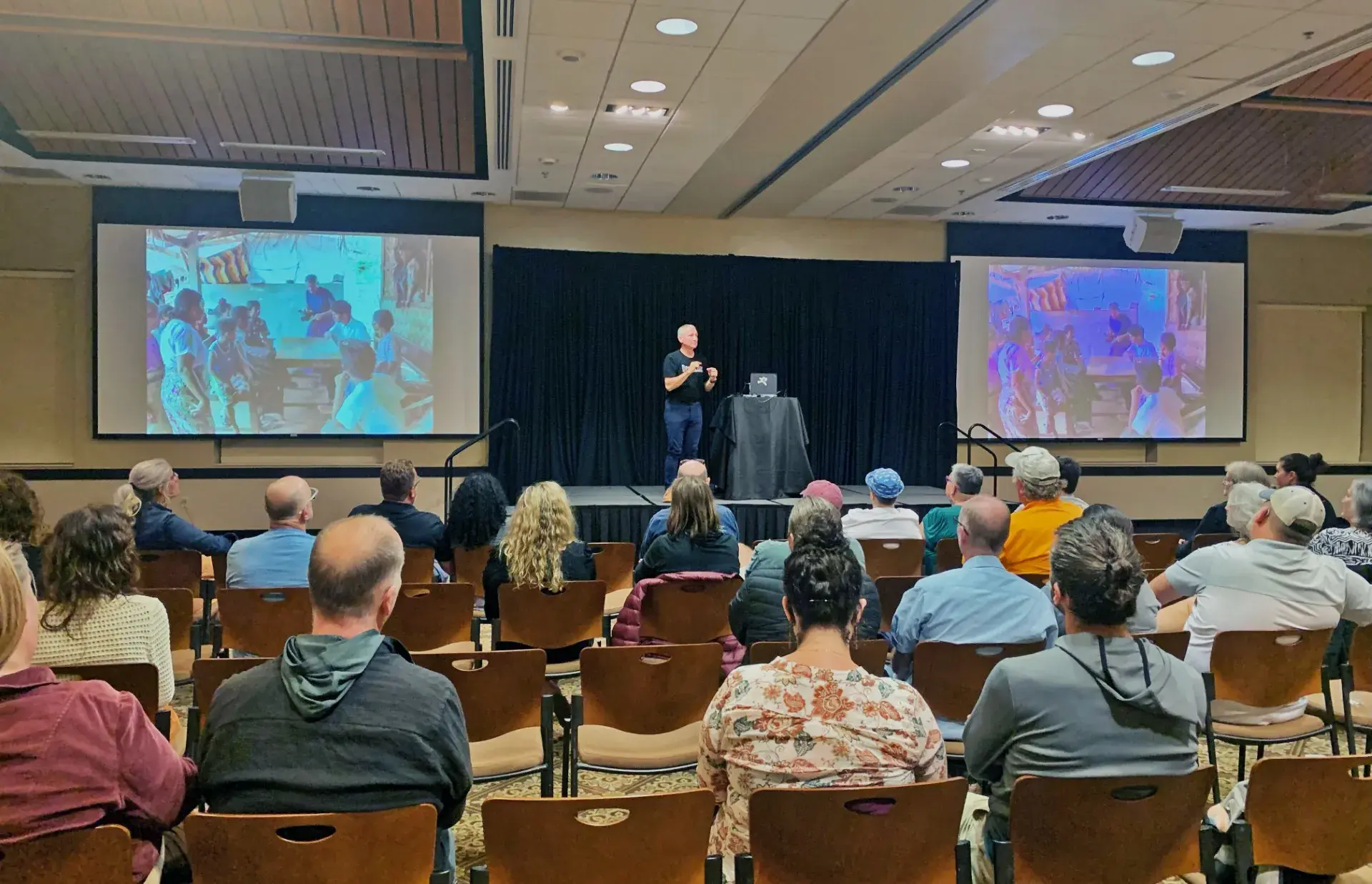
"Deaf adventurer" Joel Barish
Can you share details of any recently completed or upcoming programming within the Deaf Education and ASL programs that you are particularly excited about?
LeFors: A highlight of our Deaf Education program is the "First and Second Language Acquisition" course, taught entirely in ASL. This required course supports Deaf students' cognitive, social, and emotional development by emphasizing the importance of acquiring a second language (spoken or written) to enable broader opportunities for socialization and academic success. Early access to a first and second enhances their overall growth and integration. We believe that this course is one of many that will enhance the positive impact our Deaf Education majors will have on their future Deaf students.
Catalano: I received the Henry Flagler Award for 2025, which will fund a collaboration with a professional videographer to capture high-quality classroom instruction footage at FSDB. This footage will be used for training and professional development for teachers of DHH students nationwide.
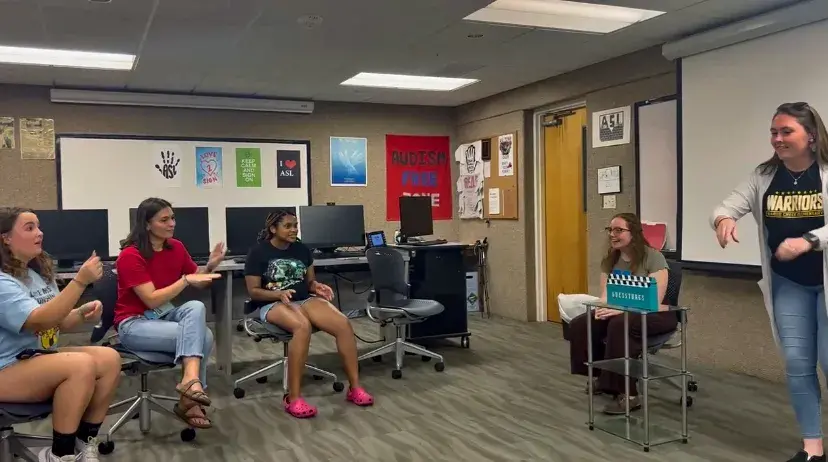
Students playing "Guess"-tures in ASL Lab (2022)
To kick off the Fall 2025 semester, we're also hosting a Welcome Week event for Deaf Education majors, ASL minors, and anyone interested in ASL and Deaf Education. Join us for an afternoon of “Guess”tures on Thursday, Aug. 28, from 5 to 6:30 p.m. in the ASL lab!
Can you describe the level of interaction you both have with students in the Deaf Education and ASL studies programs?
LeFors: As the advisor for two Deaf-related clubs at Flagler College, I interact with students who are motivated to communicate in sign language outside the classroom. I guide these clubs in promoting Deaf awareness and fostering respect for Deaf culture. The clubs host several Deaf-related events on campus, all open to the Deaf community. Through this programming, Jennifer and I are committed to recruiting more Deaf students to Flagler College. I believe- If we build it, they will come.
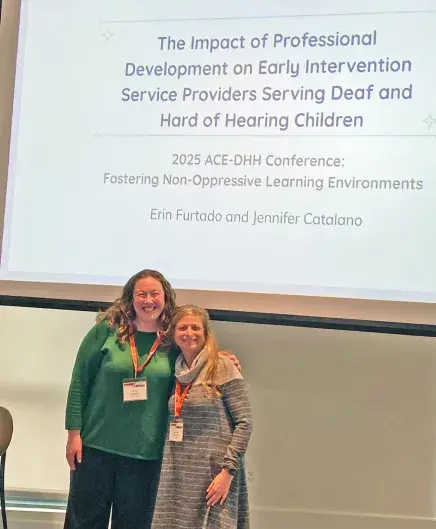
Catalano: As an academic advisor, I work closely with undergraduate students to develop their four-year plans of study. In the master’s program, I guide students through the development and implementation of action research studies, some of which are presented at local and national conferences. For example, In February, a former master's student presented her research on “The Impact of Professional Development on Early Intervention Service Providers Serving Deaf and Hard of Hearing Children” at the ACE-DHH 51st Annual Meeting in Washington, D.C.
Why are your programs integral to the Flagler community?
One example: We co-teach the Deaf Ecosystem FlagSHIP course, now in its fourth year, allowing Flagler students to explore Deaf culture. Students collaborate with local alumni business owners to enhance their businesses and make them more accessible to the Deaf community. We've partnered with various local businesses, including Monarch Studios, The Panama Hat Company, Stone Climbing, and more. This course is uniquely taught by a multi-generational Deaf instructor and a hearing instructor with over 30 years of involvement in the Deaf community. Flagler College students gain firsthand experience of Deaf and hearing collaboration.
What is something that other Flagler employees might not know about your programs?
Our programs work closely with FSDB, making Flagler College an ideal institution for training future Deaf educators. Our teacher candidates complete their practicums and internships at FSDB in dorms and classrooms; one recent candidate even interned in the School’s culinary arts program! With St. Augustine being home to a large Deaf community, students learn to be effective educators while immersing themselves in Deaf culture. They frequently attend community-focused events, such as sports games and theater productions at FSDB, and local events like the Florida ASL Festival.
How does your work in Deaf Education and ASL studies contribute to celebrating and preserving Deaf culture and history?
ASL is a vital medium for cultural expression and identity within the Deaf community. With that in mind, Flagler's Deaf Education and ASL Studies programs foster community integration by requiring students to attend ASL-related events and host silent events, immersing hearing attendees in Deaf experiences.
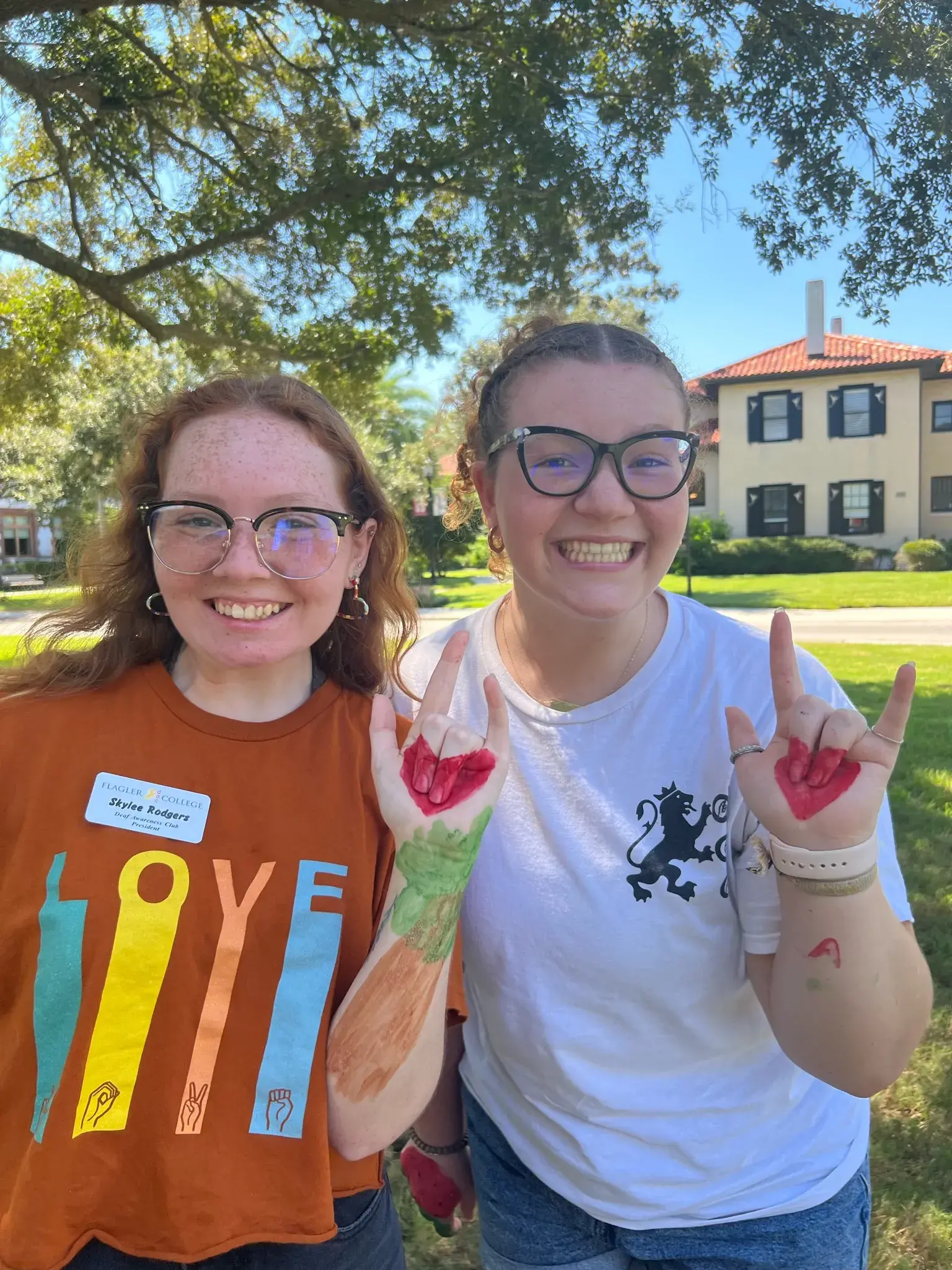
DAC members during Deaf Awareness Week 2022
Additionally, the Deaf Awareness Club (DAC) and ASL Honor Society host numerous events, including the popular “ASL Champ!” open-stage event. In Spring 2026, a new Deaf Culture course will be available through the Core curriculum, offering an interdisciplinary study of American Deaf culture and its distinct identity. This course aims to raise awareness and promote the preservation of Deaf culture and language.
How do your programs collaborate with FSDB and other local organizations to support the Deaf community in St. Augustine?
Flagler’s DAC also hosts several engaging events throughout the year to invite FSDB students to participate in, including Trick-or-Treating in Ponce Hall and attending Flagler basketball games. Several members of the College’s dance team know ASL, providing FSDB students with a unique opportunity to meet the athletes. Additionally, we collaborate with the Saint Augustine Deaf Club to host special joint events, further strengthening our ties with the local Deaf community.
Flagler College's Deaf Education and ASL programs continue to make significant contributions to the local Deaf community, fostering a deeper understanding of Deaf culture and language and preparing the next generations of outstanding Deaf educators.
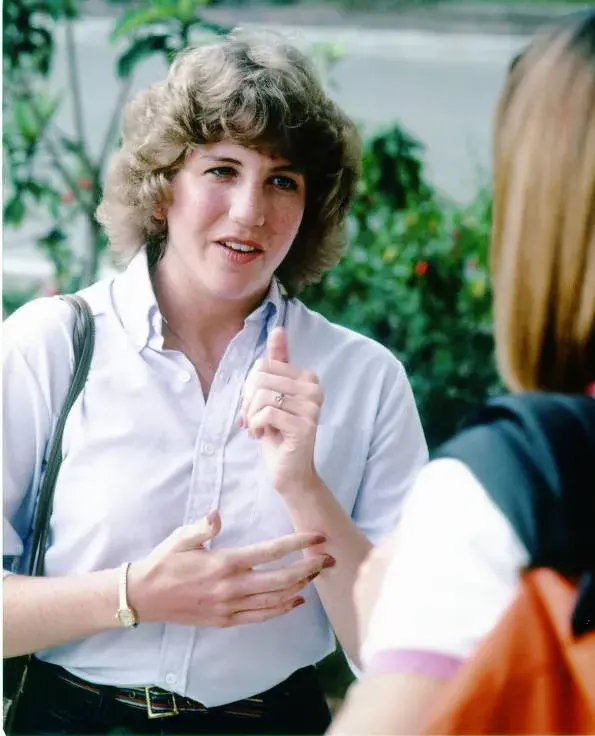
Early Deaf Ed. student signing (FC Digital Archives)



